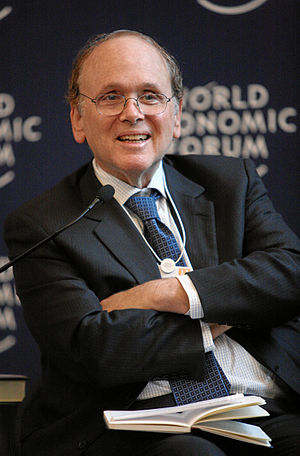
“All the tensions and stress in the worlds oil markets are flowing into the gasoline pump. The crude oil market is very tight, and a market thats this tight is vulnerable to politics, to hurricanes, to strikes and to emotions, and thats what were seeing.”
Share this quote:
“Depending on what we learn in the next few days, this may be the biggest oil-supply shock since the 1970s. We are now in the days of reckoning.”
Share this quote:
“Depending on what we learn in the next few days this may be the biggest oil-supply shock since the 1970s. We are now in the days of reckoning.”
Share this quote:
“Particularly the East Coast could soon be teetering on the edge of shortage.”
Share this quote:
“Gas prices are clearly reaching a level where its a political problem for people, ... unless you empty [the reserve], it is a very temporary expedient. It does not affect the basic supply-and-demand problem.”
Share this quote:
“Depending on what we learn in the next few days, this may be the biggest oil-supply shock since the 1970s. We are now in the days of reckoning,”
Share this quote:
“This is the fifth time that were supposedly running out of oil,”
Share this quote:
“In real terms, consumers today are paying considerably less for gasoline than they did during World War I.”
Share this quote:
“Were expecting another 20 cents more than where we are,”
Share this quote:
“When you adjust it for inflation, a year ago we were looking at gasoline prices that were cheaper than they had been during the Great Depression. So it was an extraordinary bargain.”
Share this quote:
A lesson in bringing about true changes of mind and heart comes from a Japanese functionary. By day, he crunched numbers that showed his country was approaching imminent energy crisis and helped to craft policy. By night, he weaved a novel in which a bureaucrat-hero helps see the country through to new energy sources. When the crisis came faster than he expected, he actually put the novel away because he did not want to make the burden of his countrymen worse. When the short-term crisis passed, he published his novel. Its phenomenal and well-timed success fueled the vision that inspired difficult change and maintained a sense of urgency.
Share this quote:
An important United Nations environmental conference went past 6:00 in the evening when the interpreters contracted working conditions said they could leave. They left, abandoning the delegates unable to talk to each other in their native languages. The French head of the committee, who had insisted on speaking only in French throughout the week suddenly demonstrated the ability to speak excellent English with English-speaking delegates.
Share this quote:
The author points to the impact of what he called Dutch disease, where the discovery of found wealth from a particular commodity causes a culture to atrophy with respect to work ethic and broader development. Continuing wealth from the single commodity is taken for granted. The government, flush with wealth, is expected to be generous. When the price of that commodity drops, a government which would remain in power dare not cut back on this generosity.
Share this quote:
We are living in a new age of energy supply anxiety.
Share this quote:
So the major obstacle to the development of new supplies is not geology but what happens above ground: international affairs, politics, investment and technology.
Share this quote:
People always underestimate the impact of technology. To give you an example: In the 1970s the frontier for offshore development was 200 meters, today it is 4,000 meters.
Share this quote: